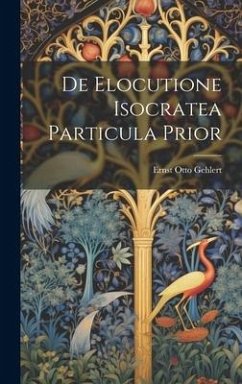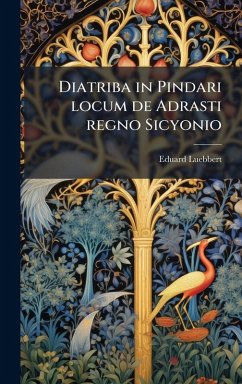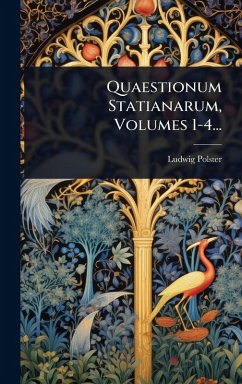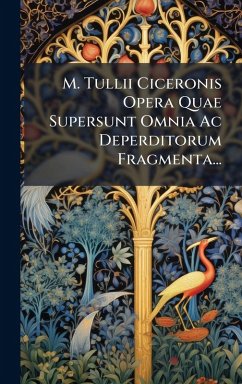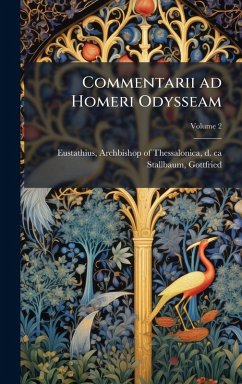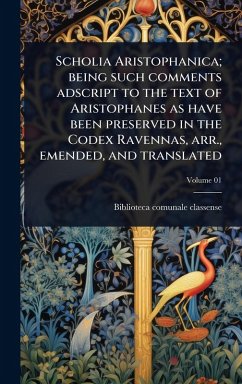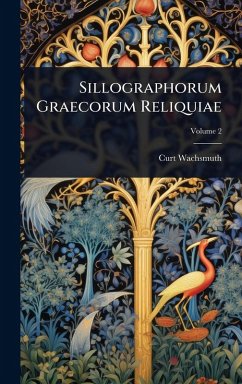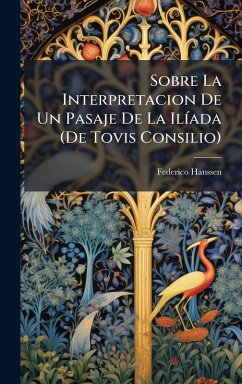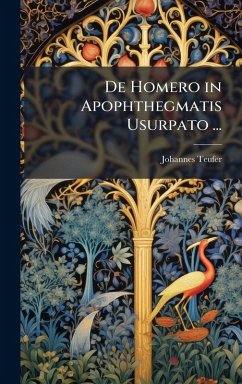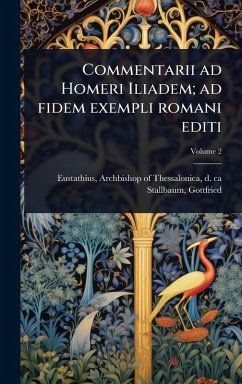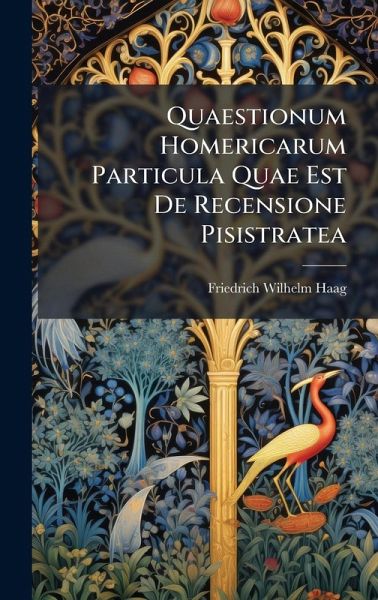
Quaestionum Homericarum Particula Quae Est De Recensione Pisistratea
Versandkostenfrei!
Versandfertig in über 4 Wochen
25,99 €
inkl. MwSt.
Weitere Ausgaben:

PAYBACK Punkte
13 °P sammeln!
Quaestionum Homericarum Particula Quae Est De Recensione Pisistratea is a scholarly work by Friedrich Wilhelm Haag, originally presented as a doctoral dissertation in 1865. Written in Latin, this treatise delves into the complexities of the Homeric Question, specifically examining the role of Pisistratus in the recension (critical revision) of the Homeric epics, the Iliad and the Odyssey. Haag's work offers insights into the historical and philological debates surrounding the authorship, transmission, and standardization of Homer's poems in ancient Greece. This book will appeal to scholars of ...
Quaestionum Homericarum Particula Quae Est De Recensione Pisistratea is a scholarly work by Friedrich Wilhelm Haag, originally presented as a doctoral dissertation in 1865. Written in Latin, this treatise delves into the complexities of the Homeric Question, specifically examining the role of Pisistratus in the recension (critical revision) of the Homeric epics, the Iliad and the Odyssey. Haag's work offers insights into the historical and philological debates surrounding the authorship, transmission, and standardization of Homer's poems in ancient Greece. This book will appeal to scholars of classical literature, philology, and ancient history, providing a valuable resource for understanding the development of the Homeric texts and the cultural context in which they were shaped. This work has been selected by scholars as being culturally important, and is part of the knowledge base of civilization as we know it. This work was reproduced from the original artifact, and remains as true to the original work as possible. Therefore, you will see the original copyright references, library stamps (as most of these works have been housed in our most important libraries around the world), and other notations in the work. This work is in the public domain in the United States of America, and possibly other nations. Within the United States, you may freely copy and distribute this work, as no entity (individual or corporate) has a copyright on the body of the work. As a reproduction of a historical artifact, this work may contain missing or blurred pages, poor pictures, errant marks, etc. Scholars believe, and we concur, that this work is important enough to be preserved, reproduced, and made generally available to the public. We appreciate your support of the preservation process, and thank you for being an important part of keeping this knowledge alive and relevant.



